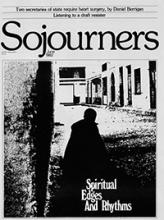During the past 20 years, we have seen a surge of explicitly religious involvement in political life in many areas of the world. Many of these religio-political upheavals contain an open or implicit struggle between efforts at religious restoration and efforts toward religious renewal.
Sometimes a "restorationist" religious feeling has won out--as in Iran, where the subjection of women has been only one element in a passionate effort to return to Islam "as it was," an effort that has so far defeated elements of an "Islamic Left" that were trying to translate Muslim thought in new ways.
Sometimes a "renewalist" religious feeling has won out, as when the black churches of the American South renewed--"made new"--the elements of Christianity in American society, drawing on very ancient strands of nonviolence in Christian thought, but translating them in fresh ways to address a 20th-century society. Similarly, the basic Christian communities of Catholics in Latin America and the liberation theology that has emerged from their work have drawn on old strands of Christian thought, but renewed them in fresh ways.
What these movements for religious restoration and religious renewal have in common is that they pose a radical critique of modern society--the society created in the last 300 or so years by the industrial revolution, explosive technological development, and the use of new means of mass control of large populations. The critique reaches across the conventional secular boundaries to question both capitalism and socialism as they now exist, and although it sometimes coheres with nationalism it often raises problems for that modern ideology as well.
Read the Full Article

